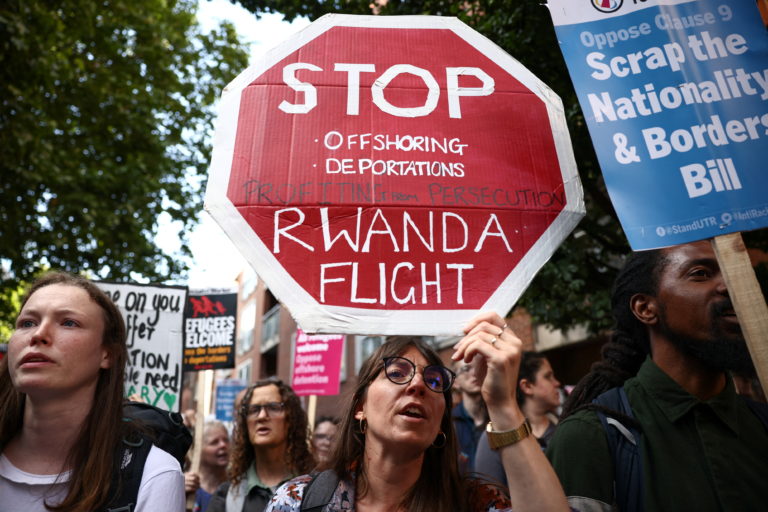The government of the United Kingdom has carried out its first deportation of an asylum seeker to Rwanda under a voluntary relocation scheme for failed asylum seekers, aiming to demonstrate the viability of its enforced removal programme.
Initiated earlier this year, the scheme offers failed asylum seekers who cannot be returned to their home country £3,000 to voluntarily relocate to Rwanda instead of remaining in the UK.
According to sources briefed on the matter, the first flight transporting an individual to Rwanda under the scheme departed on Monday.

While the UK government rejects tens of thousands of asylum applications annually, international human rights law prohibits the return of individuals to conflict-ridden or authoritarian countries.
The voluntary relocation initiative is distinct from the treaty signed between London and Kigali last year, which aims to forcibly remove asylum seekers arriving irregularly in the UK to seek asylum in Rwanda.
Prime Minister Rishi Sunak has expressed intentions to launch the first flights carrying asylum seekers to Rwanda under this untested scheme by July, asserting that it will deter migrants from making perilous journeys to the UK in small boats in search of refuge.
Facing potential losses in the upcoming local and mayoral elections, Sunak has emphasised a tough stance on migration to appeal to disillusioned voters.
Labour’s shadow home secretary, Yvette Cooper, criticised the government’s actions, stating that taxpayers are footing the bill for a costly pre-election stunt that lacks substance.
Responding to the criticism, a government spokesperson defended the initiative, highlighting its aim to relocate asylum seekers to a safe third country where they can rebuild their lives.
The Rwanda deportation plan has encountered obstacles over the past two years, including a Supreme Court ruling deeming the scheme unlawful due to concerns about Rwanda’s safety. In response, the government enacted legislation this month designating Rwanda as a safe country and modifying British human rights law to mitigate legal challenges to the scheme.
Critics, including opposition parties and migrant rights groups, have raised concerns about the effectiveness of the scheme, arguing that it may not achieve the deterrent effect claimed by the Tories.


